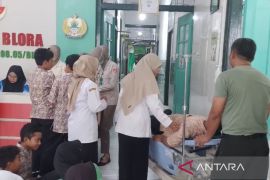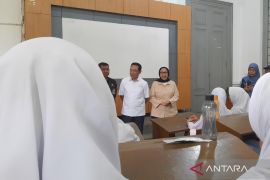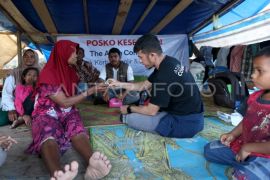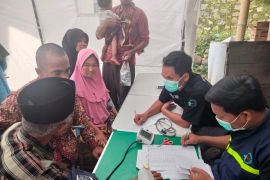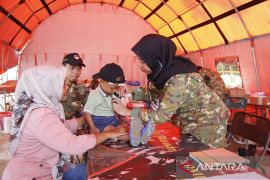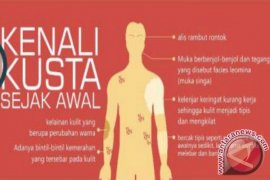Lucia Rizka Andalusia, the ministry's Director General for Pharmaceuticals and Medical Devices, highlighted on Wednesday a global shift toward biological medicines, which now make up 65 percent of the market.
She stressed the importance of supporting research and development for these products, noting that national pharmaceutical resilience is impossible without strong research efforts.
"These health product studies align with our health system transformation," she said.
ATMPs are innovative therapies that include cell therapy and tissue engineering.
Andalusia explained that the ministry's efforts cover preparation, research, production, and application of these therapies.
She noted that the most challenging part of health technology research is the clinical trial phase, which is why the ministry facilitates the process by providing clinical research units.
The ministry-coordinated research will be evidence-based, and its findings will help the National Food and Drug Authority (BPOM) in issuing permits based on the safety and effectiveness of biological products, Andalusia explained.
She mentioned that Indonesia has pharmaceutical companies producing biological products, such as insulin for diabetes and erythropoietin for kidney patients.
Andalusia reiterated the ministry's commitment to improving the capacity and quality of the industry to produce more biological products.
She also praised BPOM's initiative to upgrade its laboratories, which will help accelerate research and development of ATMPs.
Meanwhile, BPOM Head Taruna Ikrar stated that the agency plans to enhance its 80 labs across Indonesia to meet international standards, making them sustainable and digital-based to improve accuracy.
By upgrading the labs, Indonesia is more likely to be recognized by the World Health Organization (WHO) as one of its listed authorities, he explained.
"This will positively impact the quality of lab services and BPOM’s performance," he said. "Ultimately, it will benefit the economy and public welfare as a whole."
Related news: Govt presses for establishing research labs in malaria-endemic regions
Related news: Indonesia enhances health research through local, global funding
Reporter: Mecca Yumna Ning Prisie
Editor: Anton Santoso
Copyright © ANTARA 2024

